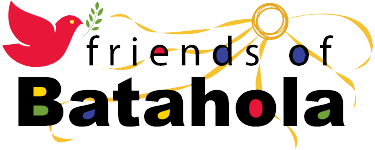

The biggest problems facing the women served by the CCBN are poverty and gender-based violence, which are closely linked to dependency and discrimination. Limited community support and inadequate access to education leave women isolated, powerless and at severe disadvantage when they compete for formal-sector jobs. Lack of self-esteem and economic dependency increase the risk of domestic violence; nearly 1 in 3 women face physical or sexual violence. Women need alternatives for improving household finances, increasing control over economic resources and connecting with other women to reduce the risk of violence. And men need opportunities for transformation so that they can become part of the solution.
The Gender and Generational Violence Prevention Program works with CCBN staff, students, and community members in the struggle for a violence-free world. The two main CCBN projects working on this issue use different methodologies to reach the same goal of ending violence toward women and children in all its forms (physical, sexual, psychological and economic).
Rights and Equality: Art for Living Free of Gender-Based Violence
Starting in 2008 this project reaches out to a Managua neighborhood with high rates of violence, the Jorge Dimitrov barrio. By sharing what the CCBN does best – the arts – this project has established a new methodology for violence prevention work. Along with classes in painting, theater and dance, the project offers workshops and reflection groups with its arts students and their parents, teachers, and community leaders, reaching over 200 community members each year. This holistic focus brings change on an individual, family and community level.
Promoting Gender-Based Violence Prevention through Social-Community Promotion and Capacity Building of the CCBN
The first phase of this project (2010-2012) focused on training CCBN staff to recognize and address situations of violence, increasing awareness of gender stereotypes and discrimination, and facilitating support spaces for those in violent situations. Over 200 people benefitted directly from these activities, with many more benefitting indirectly through a family member’s participation or one of the public violence-prevention campaigns. In the current phase, the project is creating a network of community promoters to take the message of the right to live a life free of violence to the surrounding community. The project also continues to facilitate self-help groups with women and masculinities reflection groups with men.
Get involved with violence prevention by learning more about Nicaragua’s reality.
